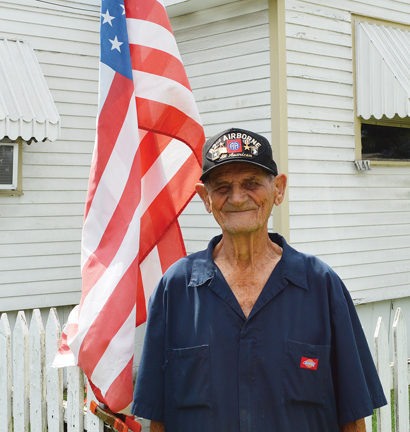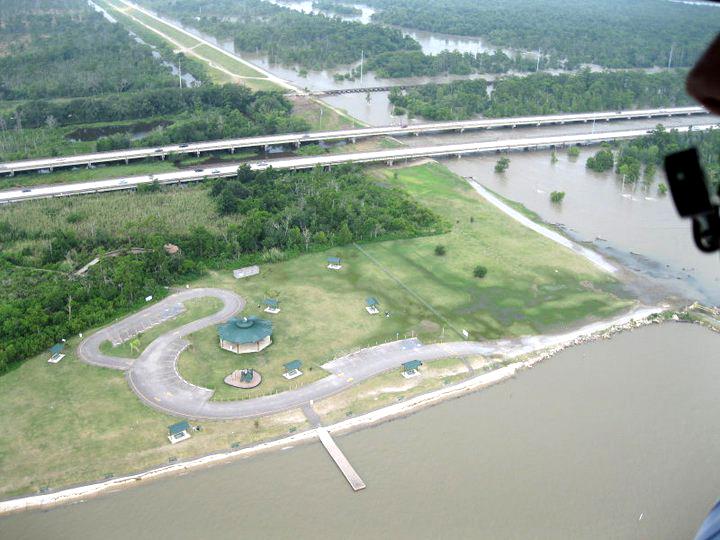D-Day Anniversary: O’Neil Boe was part of invading force
Published 3:51 pm Friday, June 6, 2014
By Monique Roth
L’Observateur
Today is the 70th anniversary of D-Day.
Documentaries were aired, articles were read and Americans remembered the thousands of fearless young Americans who gave their all on June 6, 1944.
On that June day, the Allied Forces of the United States, Britain, Canada and France attacked German forces on the coast of Normandy. That attack, and eventual victory, became the turning point of World War II and is called D-Day, or the Invasion of Normandy.
The term “The Greatest Generation” is often used to describe Americans who participated in the war effort in WW II. The term originated from Tom Brokaw’s 1998 book of the same name.
In the book, Brokaw wrote, “it is, I believe, the greatest generation any society has ever produced.”
And while it’s possible to educate yourself about the enormity of D-Day and the greatness of that generation through books, films and television shows, arguably the best accounts can come from someone who lives right off of River Road in Reserve — a D-Day paratrooper survivor.
O’Neil Boe of Reserve was born June 22, 1922. One of eight children born to Jean Baptiste Boe and Josephine Klibert, O’Neil grew up in St. John the Baptist Parish. He attended Leon Godchaux High School before leaving school to help support his family in the workforce.
Boe tried to fulfill his dream of becoming a pilot in the military, but was unable to pass the vision portion of the physical assessment.
Boe said Airforce officials approached him not long after failing the vision test and told him they were forming a new division, called the paratroopers, and asked if he wanted to join.
“An old country boy like me asked, “Well, what do they do?’” Boe remembers with a chuckle.
After the officials told him paratroopers jumped out of planes, Boe’s answer was simple.
“Sign me up,” he said.
Boe entered the service at the tender age of 19 and completed basic training at Georgia’s Camp Wheeler. His unit was moved to Fort Benning to complete Airborne training. He was assigned to the 507th Parachute Infantry, Company B.
Time, filled with training and work, led up to June 1944. Boe said the two weeks leading up to the D-Day invasion were spent studying maps at an airport surrounded by barbed wire fences. With over 5,000 ships and landing craft and 11,000 planes ready to execute the planned invasion, word was given to attack. The first attack wave began with the paratroopers, who jumped at night in the pitch-black darkness and landed behind enemy lines. They were to destroy key targets and capture bridges in order for the main invasion to land on the beach.
Boe said Gen. Dwight Eisenhower made small talk with the troops in the days and hours leading up to the attack. When Eisenhower asked one of the young men if they were scared, Boe said one yelled, “Hell no!”
“Well I’m scared,” Boe said Eisenhower responded.
A picture of Eisenhower addressing paratroopers, including Boe, is displayed in the D-Day Museum in New Orleans.
Boe said Eisenhower, with tears in his eyes, looked at the young men and told them before the attack, “A lot of you boys are not coming back.”
“He was right,” Boe mumbled this week in recollection.
Boe said his company’s objective was to protect the bridge on the Merderet River.
“We just had to stop the Germans from blowing it up,” Boe recalls matter-of-factly.
He said the Germans were trying to blow up the bridge to stop the Allied forces from moving troops across. They completed their objective on the third day.
“You could have walked across that bridge and never have your feet touch the bottom,” Boe said.
“You were just walking on bodies.”
The mass destruction Boe’s 91-year-old eyes have seen is unimaginable.
“It still bugs me,” Boe said when talking about what he saw on D-Day and the days before and after it. “I just can’t describe it. You had to be there.”
When Boe speaks of his friend, who he only refers to as Evans, who dropped dead after being hit with gunfire while standing right next to him, it is evident that time does not heal all wounds, especially emotional ones.
“What could affect you any more than that?” Boe said this week, his voice trailing off.
Of the nearly 300 men in the 507th Parachute Infantry, Company B, who parachuted into France during the D-Day invasion, only 52, including Boe, survived.
“Serving in World War II made a man out of those who served,” Boe said.
Among the many medals awarded throughout his service, Boe earned a Silver Star for his actions on July 10, 1944. After the enemy captured his company’s radio, Boe, without orders, moved forward under heavy enemy fire, recaptured the radio and returned it.
“I just jumped up with my machine gun and got the radio back,” Boe said with a smile. “The award says, ‘For gallantry in action above and beyond the call of duty.’”
He said the feeling he gets when he hears those words is better than the medal itself.
Boe was honorably discharged in December 1945 and returned to the River Region to his wife Rose, whom he married during a week’s leave in 1943. Together, they raised five children, one girl and four boys.
As a paratrooper, Boe made a total of 42 jumps, including three combat jumps behind enemy lines. To this day, Boe said he has never landed in a plane during a commercial flight. He said he once planned a flight to Colorado for a reunion but decided to drive instead at the last minute.
“I don’t land, I jump,” Boe said with a sly grin.
The term “hero,” which is thrown around casually to describe caped crusaders and all-star athletes, certainly applies to war veterans. However, Boe does not lump himself into the hero heap.
“I’m not a hero,” Boe said. “The living boys aren’t heroes. The boys in the graveyards are the heroes.”
And once again, a member of The Greatest Generation proves exactly why it is called so.






